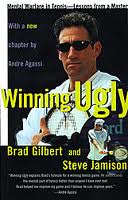Being mentally prepared for competition can help develop consistent results. You may be able to perform up to your potential while improving your already sharpened physical skills. One aspect of mental preparation is focusing on your fencing during a bout (as opposed to the impending outcome of the bout) before you actually fence it.
Fencers know that their sport requires focus and concentration. Maybe you’ve yelled, “Focus!” from the sidelines at a teammate who is struggling against their opponent. “Focus” is a general and vague word. Specially, what are they to focus on? During a bout there lots of things to remember, like maintaining proper form, creating open target area, keeping your distance and choosing which tactical moves to execute. How can you do all of this at once and still stay “focused”?
It depends on your perspective. Sometimes when people fence, they focus on whether are going to win or lose the bout. They may have figured out how many touches they need to get a good seed going into DEs. Or they get down a couple of touches and start panicking because they are at a greater chance of losing. The thought of winning or losing a bout can be very distracting and oftentimes, a fencer’s mind may not be in the bout anymore.
A healthier perspective would be focusing on fencing itself. This involves not focusing on needing a touch, but HOW to get the touch. This requires using cue words, having no expectations, and directing your attention on what you need to do in order to get the touch.
• Cue words. These are a must for every fencer. You may even use them already. Instead of being overwhelmed by thinking about every little thing that you need to do in a bout, use specific, short phrases that remind you of a few things to focus on. A few examples might be, “Point out,” “Hand up,” or “Quick feet.” I would say, “Connect”, to remind myself to get my tip connected with the target.
• No expectations. Having expectations about the result of a bout, whether it’s about winning or losing, can be a dangerous, self-sabotaging habit. Fencers tend to “go through the motions” and expect the touches to come to them. Having expectations can lead to disappointment in a loss, or not taking credit for a “lucky” win. Fencing your hardest every time against every opponent detaches you from any emotional attachment to a result of a bout. Wins are earned, and losses build bouting experience.
• Your attention please. There are many things that can distract you while you are fencing, but nothing is as distracting as losing. This is especially true when you are fencing someone you feel you should beat. It is times like these when you have to focus on what you need to do to get the touch. This may be keeping your distance, taking your opponent’s blade in a certain line, or setting up a parry-riposte. Staying in the bout without worrying what the score is can be a highly effective tool.
Keeping your focus on your game can be difficult, particularly if you are losing, people are watching you, your coach is yelling at you, or if you are in pain. You can block these and other distractions out by practicing your cue words, having no expectations about the result of the bout, and concentrating on how to get each touch. It can keep you emotionally separated from the win or loss, and give you the ability to get the most from each bout.
If you have a sport psychology fencing question, please send it to Beth at [email protected].



